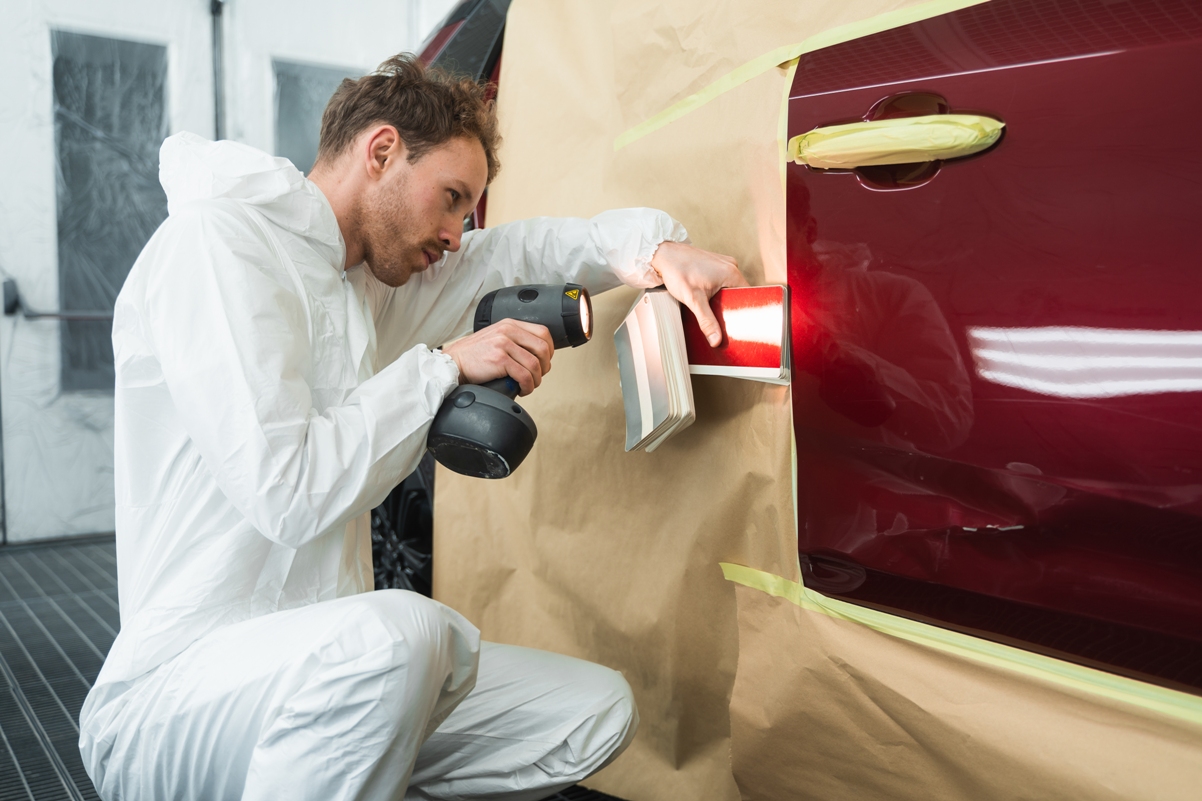In this post, I will try to address a very important issue for every bodyshop, regardless of its size or location – the issue of investment. In “Collision repair management 101” series I have stressed my vision that any collision repair workshop must follow general rules of business management. It is a big mistake to think that spraying cars is kind of special and unique trade, which has nothing in common with the rest of the business world. As it was discussed in the previous posts, whether we talk about fixed or variable costs and cash flow, a bodyshop manager should apply the same methods of management as bank or travel agency. This is why, when it comes to growth of a given bodyshop, its owner will come up with a question when to invest hard earned bucks into equipment, relocation or human resources, and, most importantly, why to invest.
Types of investments in a collision repair shop.
The first thing that might come up to your mind when thinking about investment in a collision repair industry would be a new spray booth or other equipment. While investing in equipment and tools is definitely a significant issue, it is not the only area where your money can be invested. For example, moving to a new or bigger location or the renovation of the existing place, is, no doubts, a wise investment. Another very important aspect I would like to refer is training of personnel. With new car body materials, VOC regulations, innovative materials and tools, training of your staff can hardly be overestimated.
Return on investment
Perhaps many of you associate return on investment (ROI) as a term for stocks or bonds market. However, in plain English, return on investment is a number, which in measurable way shows us what will be the benefit per each dollar spent on it. Let me bring you some examples.
Imagine a medium-size bodyshop with one painter and two prep guys. The shop is very busy and the owner estimates that he loses about 25% of extra revenue due to the limited capacity. Therefore, he is considering investing in a second spray booth. Sounds logical up to now. Now let’s consider the costs of the investment as total. The cost of a spray booth with installation is 35.000 Euro (or USD), then at least one painter and one prep person must be hired with a total yearly cost of about 40.000 Euro. Now the bodyshop’s turnover is 500.000 Euro and expected additional business due to higher capacity is expected to be 125.000 Euro annually. With an average operating profit of 35%, the investment will bring about 43.750 Euro net profit. It may look attractive in the beginning, if we do not consider additional salary costs. Yet, if we take into consideration that every year the additional business of 125.000 Euro will need also 40.000 Euro salary expenses, the pay off period for the investment will be about 7 years. It is crucial to calculate all the related costs. Is the period of 7 years good enough? Can we increase the turnover with other means (infrared lamps, for example)? Is our prediction of increase in turnover by 25% well justified?
Let me bring to your attention another investment example, of a much smaller case. For example, a painter in bodyshop X wants to buy a new model of premium quality spray gun for basecoat application. He expects that the new spray gun will save about on average 15% of a material sprayed. The cost for this spray gun is 450 Euro. On average, the painter is spraying 2 liters of paint every day with the cost on 1L about 45 Euro. The new spray gun will save to the painter 13.5 Euro from the cost of the paint each day (2L x 45 Euro x 15%), therefore in a month of 23 working days the bodyshop will save 310.5 Euro, meaning that in about 45 days the cost of the purchase will fully covered by the savings in paint. Not bad at all, taking into account that the new spray gun will also improve colour matching and overall quality of spraying. From my experience, investing in the new spraying equipment usually has the highest and quickest return on investment in any bodyshop.
I hope that it is vital for car body repair professionals to invest their time for budgeting, planning and management tasks. Office work is as important as repairing cars. Benjamin Franklin once said: “An investment in knowledge pays the best interest.” I couldn’t agree more.





